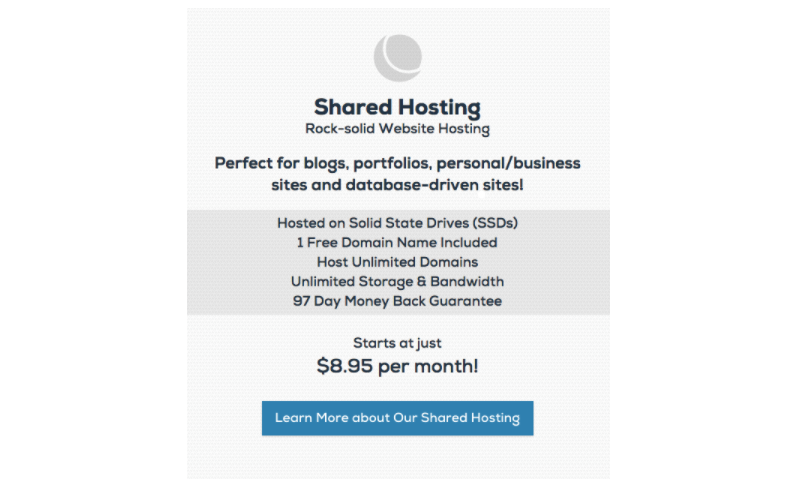Finding a solid, reliable web hosting company at a reasonable price is a key to the success of a website. This review will compare HostGator vs. DreamHost — the former is a well-known brand while the latter is growing steadily.
Also Read: Bluehost Vs SiteGround Review
HostGator Vs. DreamHost Tests

I really wanted to focus on facts and statistics, so I pitted these two head-to-head in various rigorous tests.
The tests are:
- HostGator Vs. DreamHost Uptime
- HostGator Vs. DreamHost Website Speed Test
- Website Server Response time
- Benchmark Test
- Customer Support
- Control Panel with Demo
- Credibility Test
HostGator Vs. DreamHost Uptime

Both HostGator and DreamHost provide a solid uptime guarantee: HostGator offers 99.99%, and DreamHost offers 100%. Few web hosts offer this strong of a guarantee. HostGator actually has two different versions:
HostGator Uptime Guarantee – this is for clients using Shared and Reseller agreements.
HostGator Network Guarantee – targeted at customers utilizing Dedicated Server or VPS plans.
DreamHost’s 100% Uptime Guarantee provides one day of hosting credit for each hour of interrupted service – with a limit of 10 percent of the next month’s hosting fee. Keep in mind that downtime begins to be recorded from the time the client opens a ticket.
In my testing, HostGator had no major interruptions and edged out DreamHost.
Winner: Tie – HostGator has a stronger guarantee and backs it up with a near-flawless record.
We use real-time live uptime tracking of a website hosted under HostGator and DreamHost for understanding their uptime.
HostGator Vs. DreamHost Website Speed Test
In many ways, website speed is the ultimate barometer of the quality of a website hosting service. Pure speed is not the only important measurement, but it is a straightforward way to compare web hosts. I evaluated HostGator vs. DreamHost using an identical webpage.
Winner: HostGator edged out DreamHost in this competition. This is partly attributable to the sheer number of data centers they have around the world.
Web Hosting: HostGator; Source: Pingdom; Load time:1.79 S

Web Hosting: DreamHost; Source: Pingdom; Load time: 2.54 S

Website Server Response Time
Website server response takes a look at how fast the actual servers at HostGator and DreamHost are. Like the pure website speed test, HostGator takes the lead in website server response time. Their large server arrays spread around the world mean there is a higher chance of a regional server handling the request, speeding up response time.
DreamHost uses Solid State Drives for shared hosting as well as Virtual Private Servers, which gives them a lightning-fast response.
Winner: HostGator – early investment in multiple server arrays gives them the edge.
Web Hosting: HostGator; Source: Google Analytics; Server Response Time: 0.48 S

Web Hosting: DreamHost; Source: Google Analytics; Server Response Time: 0.48 S

Benchmark Test
The benchmark test is a good snapshot of each provider’s overall performance and technology. HostGator has ten backbone providers connected to multiple data center complexes. They use AMD Opteron processors for both shared and reseller hosting.
DreamHost has several 10-gigabit links over several locations. They have three data centers in California and one in Virginia, all linked internally with fiber optics.
Winner: HostGator – the benchmark test really comes down to who has the best technology, and the results prove HostGator is further ahead of DreamHost at this point.
Prices And Plans
Breakdown of prices, plans, and features of HostGator and DreamHost.
HostGator Prices and Plans

DreamHost Prices and Plans

Customer Support
HostGator took some heat a few years ago about their customer service. In response, they have created an entire support portal complete with phone, live chat, ticket, and knowledge base support options.

Although DreamHost is smaller, they handle all support in-house. They have no outsourced personnel.
Winner: HostGator – HostGator’s resources are deep, and they have easier access options, while DreamHost has a consistent, personalized service.
Control Panel with Demo
HostGator’s control panel called cPanel, is one of the most used systems among top web hosting services. It allows you to easily maintain your site, including necessary tasks like setting up email or changing passwords.
DreamHost offers a custom control panel that they say eliminates feature bloat and streamlines the administration process. Since it is unique to the company, it takes some getting used to before you are up to speed. However, there are tutorials available.
Winner: DreamHost wins here with a simpler, more direct control panel.
Credibility Test
HostGator gained credibility points when they faced some customer service issues a few years ago. They invested in expanded additional support staff and access channels, demonstrating a commitment to customer satisfaction.

DreamHost began as the brainchild of four college friends in 1997. Since then, they have accumulated 400.000 clients running 1.5 million websites. HostGator is much smaller but has strong credibility with customers.
Winner: HostGator wins with a strong reputation and tons of positive testimonials. DreamHost has personal service and in-depth tech community involvement.
HostGator Vs. DreamHost – Which Should Be Your Choice?
So, which one do you choose between HostGator vs. DreamHost? One is large and handles tons of clients, while the other is more personalized. All in all, HostGator is your best choice. They use the industry-standard cPanel, employ multiple customer service channels, and have an extensive infrastructure – better tech means faster servers and websites.
DreamHost is a quality service, but HostGator offers better overall value. I break it down as follows:
- Almost flawless uptime performance year in and year out.
- Extensive data array network offers faster server response.
- Strong security protocols repel malware and criminal hackers.
- Wide variety of plans to fit every budget.
- User forums help speed up bread-and-butter service questions.
- Easy upgrade path to high-quality dedicated and VPS services.
- Commitment to on-going investment in customer support.